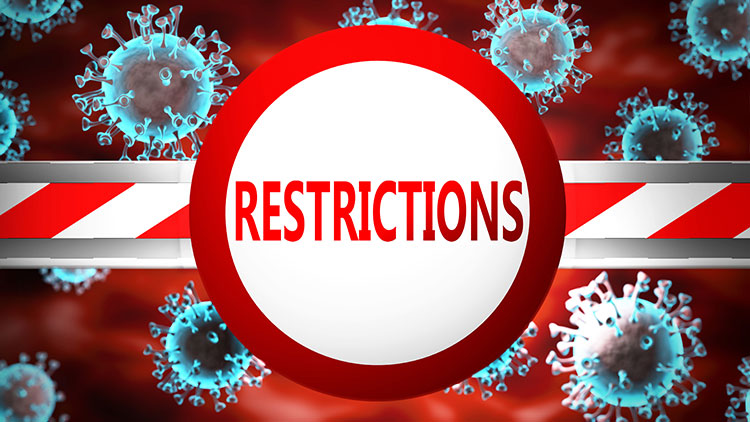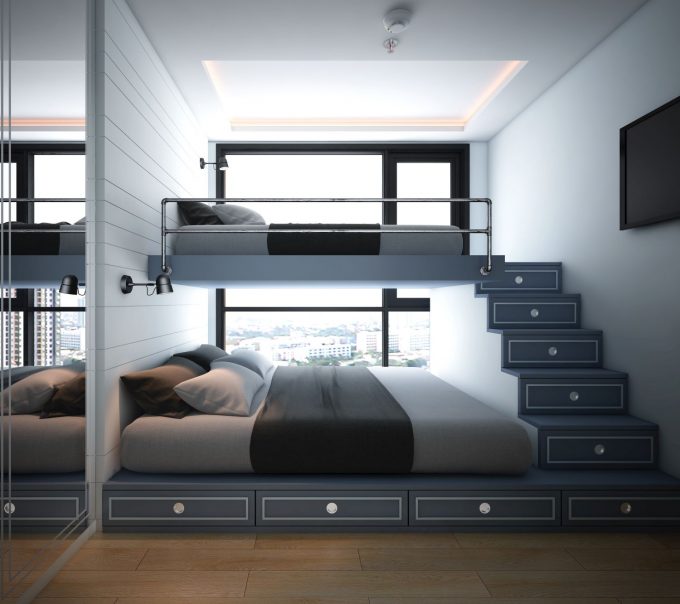
Australian motels in the aftermath of the coronavirus pandemic
The restrictions imposed on the community in order to contain the coronavirus pandemic have hit the ailing Australian motel industry hard.
The 4000-odd motels and more than 20,000 employees in the sector have been negatively affected by the ban on domestic travel, perhaps more so than city hotels.
Since the ’60s, motels across Australia have been an important segment of the hospitality industry, as they have been servicing the widest possible social categories. Before the current pandemic, motels were experiencing a revival of interest from the Australian travelling public, in part due to nostalgia. Unlike 60 years ago, when Australian motels were – like in the United States – ‘mom and pop’ -type operations, nowadays a number of them have become the property of local or overseas investors, with the majority being run by hired management teams.
Recently, however, the profitability and traditional good reputation of Australian motels have been adversely affected by 2 types of overseas operators.
The first is made up of a few global OTAs that, between them, have come to generate more than 70 percent of total reservations. Their predatory commission rates in excess of 15 percent have led many local motel operators and some leading business people such as Dick Smith to call on the Australian public to bypass OTAs and book their motel rooms directly, during a 2018 media campaign. Unfortunately, very few young receptionists and management teams today are prepared to deal with an increase in phone enquiries and bookings, even if that would significantly improve the motels’ profitability.
As a result, many motels have lately been struggling financially, with less resources available to make needed renovations and to pay their employees, especially housekeeping staff.
Accordingly, management teams are being forced to shorten the time allocated to cleaning rooms and bathrooms, and hygiene standards in the industry are falling way below what they used to be 30 years ago. On the other hand, the practice of outsourcing housekeeping operations, adopted by some motel owners in major cities in order to save on payroll costs, only aggravates matters. Cleaning contractors usually pay very low wages and often employ young and inexperienced cleaning teams, who are not under the control of the motel managers.
Whilst motels have always been an integral part of the Old Economy, together with the automobile industry, OTAs are leading representatives of the New Economy, which are at odds with the former. OTAs are completely oblivious of the fact that they are pushing motel operators to the wall. A lack of intervention from the ACCC – to effectively prevent OTAs from charging predatory commissions – thus has the potential to undermine the entire sector economically.
The second type of overseas operators affecting the performance and reputation of Australian motels consists of a group of foreign investors from Asia who had missed out in the sixties on the car revolution due to poverty. The fact prevented them from owning cars, building roads and motels and acquiring the know-how associated with running them. Their lack of experience in the field did not deter such investors from using some of their recently acquired wealth to buy scores of Australian motels, with detrimental results for the industry as a whole.
To our astonishment, the second group gets on quite well with the first group, thinking nothing of forking out tens of thousands of dollars monthly in commissions and squeezing personnel and housekeeping costs below the bare minimum, in order to do so.
To be sure, however, Australia needs to protect its traditional motels, as affordable short term accommodation will soon be back in demand. Motels provide an essential service especially in regional Australia, not only to families and holidaymakers but to tradies, business travellers, or casual agricultural workers.
To make sure motels will be ready and able to cope successfully in the post-pandemic environment, there are a few changes that should take place before the deconfinement happens.
* Management and housekeeping teams should be required to work separately in their designated areas according to their main job descriptions. The mixing of the housekeeping team with the management team while the rooms are being cleaned is actually dangerous from a biosecurity point of view. Managers should not be required, as they sometimes are, to be involved with typical housekeeping functions like stripping beds, for example, as they can cross-contaminate not only the kitchen ( breakfast), but the reception area and ultimately, their guests. Even during a flu epidemic, such an unwise, albeit cost-saving blurring of management and housekeeping functions could end up leaving a motel without a functioning management team at the worst possible time, as its replacement is often impossible on short notice.
* Housekeeping staff should be carefully selected, trained, supervised and paid decent hourly wages, which would prevent them from seeking alternative employment. In this current pandemic, we have seen that housekeeping personnel can be a vector of disease if forced to move among multiple employers, i.e. a motel and an aged care home. Housekeepers should be provided with adequate personal protection equipment, such as rubber gloves, face masks as well as a set of washable overalls, in addition to sufficient cleaning and disinfectant products. Without overalls, for example, the risk of housekeeping staff carrying pathogens to their cars, shops and households increases exponentially.
* The sad fact is that not all motel owners will significantly improve the hygiene standards of their premises by themselves, especially if that means increased costs. This is why government oversight is essential. To date, however, environmental inspectors attached to local councils are too few, have too much on their plate and in practice they are only able to control the state of the motels’ swimming pools (please refer to The Queensland Environmental Health Practitioners – Attraction and Retention Survey Report, August 2008 ). This allows many motel investors, especially foreign, to pay scant attention to the cleanliness of their premises, a risky situation which could have devastating consequences during epidemic or pandemic outbreaks.
After years in which billions of dollars have been invested into luxury accommodation developments, Australia’s motel sector has become the Cinderella of the local hospitality industry. Because the sector was doing well until about a decade ago, government assistance or indeed oversight of motel operations was deemed largely unnecessary. However, at the same time as it became urgent for many older motels to undertake costly renovations, overseas OTAs have been allowed to get away with predatory practices which further weakened their profitability.
The coronavirus pandemic is reminding us all, however, that the only decent choice in budget accommodation across the country is still the long overlooked and underrated Australian motel. The motels’ usefulness for the domestic travelling public is going to increase in importance in the wake of the pandemic, as the loss of purchasing power suffered by most makes paying for pricier accommodation impossible.
These are but a few reasons why the local, state or federal politicians should take a keen interest in the fate of the local motel industry, to ensure its survival and future prosperity.
Ryan has a background in education and corporate IT consulting in Sydney, while Lidia is an ex-Westpac treasury clerk. Together, they have acquired hospitality industry experience since 2004, mainly in France and Greece. In Australia, Ryan and Lidia have managed, among others, the Cronulla Motor Inn in Sydney’s south in 2018, achieving a 99 percent mark awarded by Star Ratings for the cleanliness of the premises.






